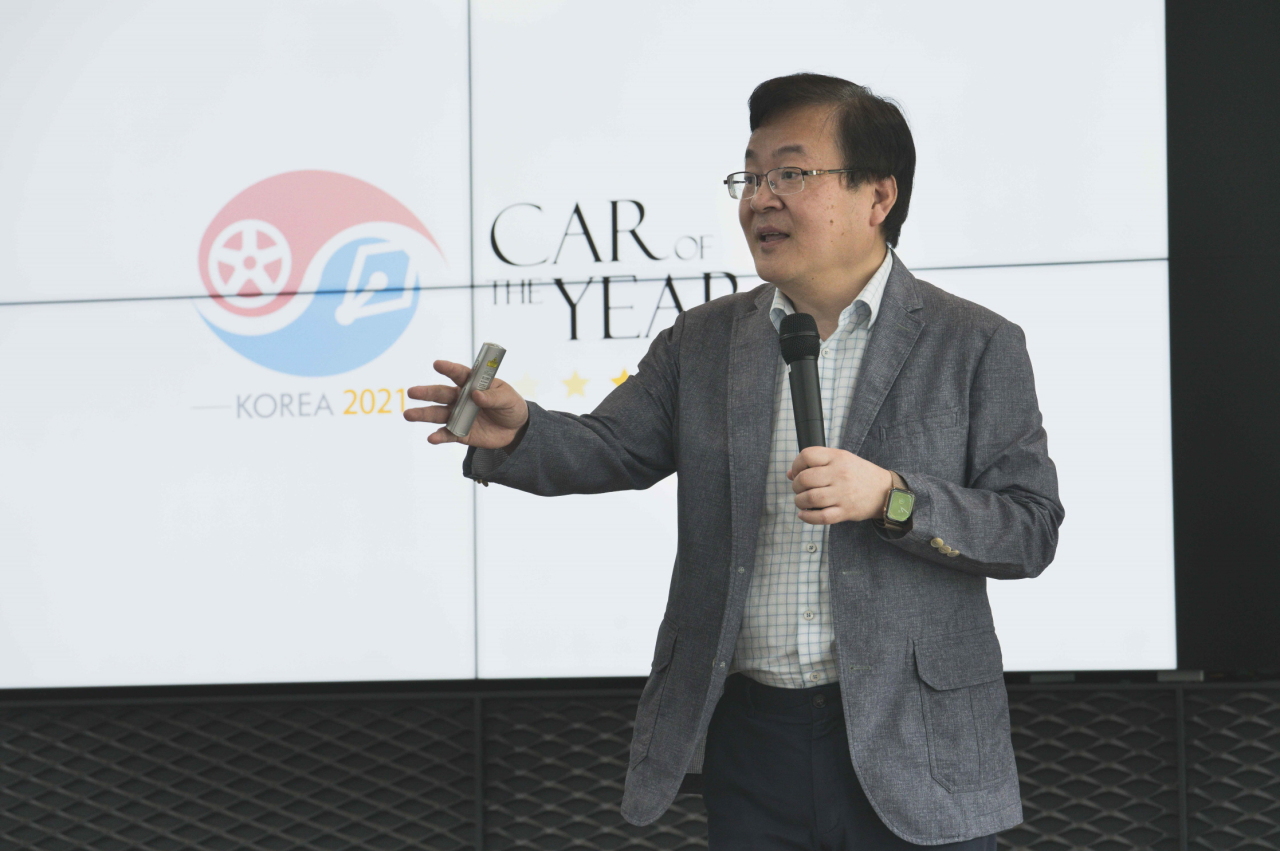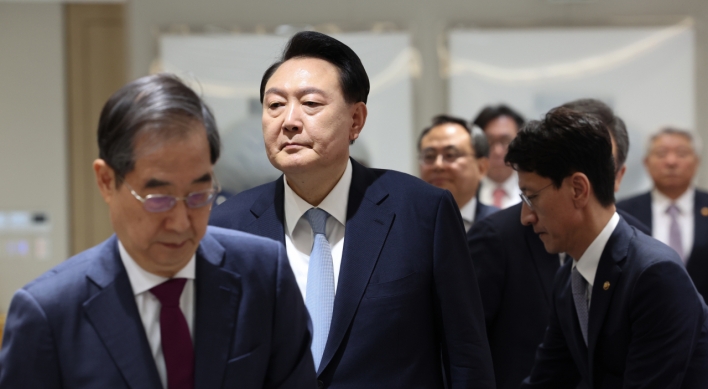Car industry hit harder by COVID-19 than any other financial crisis: expert
By Jo He-rimPublished : July 12, 2020 - 15:44

COVID-19 has hit the global car industry harder than any other financial crisis, and car sales will not recover to last year’s levels until around 2023, a market analyst said Friday.
Lee Bo-sung, the head of Hyundai Motor Group’s global business R&D center, delivered those predictions at a seminar organized by the Korea Automobile Journalists Association.
Members of KAJA gathered at the AMG Speedway, a driving circuit in Yongin, Gyeonggi Province, to attend the seminar and select the Car of the Year after evaluating 20 cars representing 14 brands that had either been released in the first half of this year or undergone facelifts. KAJA has 48 media outlets as its members.
According to the Hyundai’s R&D center data, the global auto industry sold about 87.56 vehicles in 2019. But this year, the figure is expected to plunge by 20 percent to about 70 million, Lee said.
By comparison, the financial crisis of 2008 and 2009 depressed sales by about 6 million over two years.
For 2021, Lee forecast, global sales will go up slightly -- but only to about 90 percent of last year’s sales, probably somewhere between 75 million and 80 million vehicles.
“Putting last year’s sales record as the standard, I believe the demand will fully recover by around 2023,” Lee said.
While economic recessions influence consumer sentiment and lead to decreased demand, the pandemic has affected both demand and supply, with lockdowns across the globe closing factories and trade routes, Lee explained.
COVID-19 is more threatening for the industry because it has taken a toll not only in developed countries, but also in emerging markets, which had been a buffer that helped the industry minimize its losses during financial crises, Lee added.
Lee said the auto industry will look very different after the COVID-19 crisis has passed. Risk management in the supply network will be a higher priority, and the value chain will be more digitalized.
With social distancing having become the norm, new behavior patterns will tend to discourage the sharing economy and the use of public transportation. Still, they will not reduce the size of the market, but rather change its direction, Lee said.
“I believe the idea of ‘temporarily sharing’ items will be switched to ‘occupying’ items, and services such as subscription-based and long-term rentals will grow,” Lee said.
The idea of owning a car will be more attractive because it means having one’s own space, and companies will have to think about the activities that cars can facilitate for drivers and passengers. This will also increase polarization between those who seek luxury cars and those who look for cheaper vehicles.
“The next five, six years is expected to decide the fate of some companies -- some might disappear, and some may find opportunity in this time for a leap,” Lee said.
By Jo He-rim (herim@heraldcorp.com)







![[KH Explains] How should Korea adjust its trade defenses against Chinese EVs?](http://res.heraldm.com/phpwas/restmb_idxmake.php?idx=644&simg=/content/image/2024/04/15/20240415050562_0.jpg&u=20240415144419)











![[Today’s K-pop] Stray Kids to return soon: report](http://res.heraldm.com/phpwas/restmb_idxmake.php?idx=642&simg=/content/image/2024/04/16/20240416050713_0.jpg&u=)